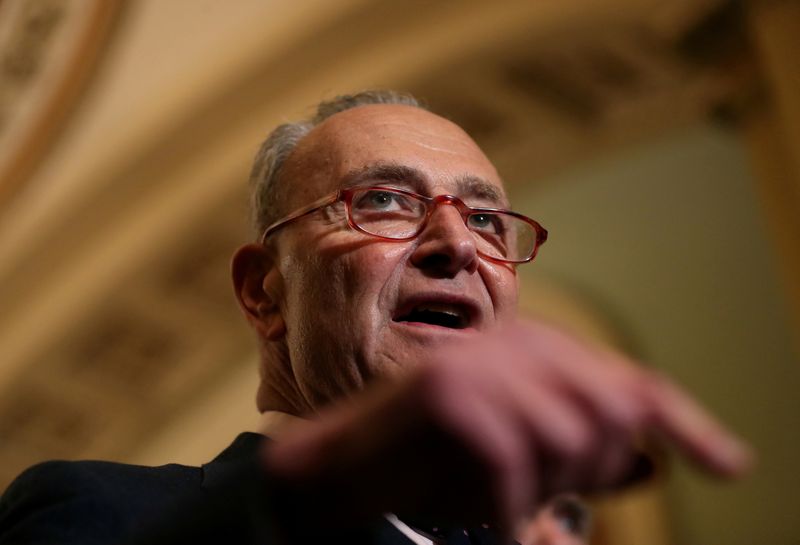Senate leader Schumer pushes for AI regulatory regime after China action
2023.04.13 12:12

© Reuters. FILE PHOTO: U.S. Senate Democratic Leader Chuck Schumer speaks about impeachment to reporters after a weekly policy lunch on Capitol Hill in Washington, U.S., January 7, 2020. REUTERS/Leah Millis/File Photo
By David Shepardson
WASHINGTON (Reuters) – Senate Majority Leader Chuck Schumer said Thursday he had launched an effort to win bipartisan agreement for a new regulatory regime to address concerns about artificial intelligence.
Schumer’s office said “given the AI industry’s consequential and fast-moving impact on our society and global economy” he believes it is a matter of high urgency to act.
Schumer cited China’s release this week of its own approach to regulating AI, calling it “a wake-up call to the nation and urgent action is required for the U.S. to stay ahead of China and shape and leverage this powerful technology.”
The Biden administration on Tuesday said it is seeking public comments on potential accountability measures for artificial intelligence systems that have raised national security and education concerns.
ChatGPT, an AI program that recently grabbed the public’s attention for its ability to write answers quickly to a wide range of queries, in particular has attracted U.S. lawmakers’ attention. It has grown to be the fastest-growing consumer application in history with more than 100 million monthly active users.
Schumer’s office said he has for months been “discussing and circulating a high-level framework that outlines a new regulatory regime for artificial intelligence, engaging leading artificial intelligence experts to help inform the proposal.”
Schumer wants to create a “flexible and resilient AI policy framework across the federal government that can adapt as the technology continues to advance.”
China’s cyberspace regulator unveiled draft measures Tuesday for managing generative AI services, saying it wants firms to submit security assessments to authorities before launching offerings to the public.
The rules drafted by the Cyberspace Administration of China () come as several governments are considering how to mitigate the dangers of the emerging technology.








